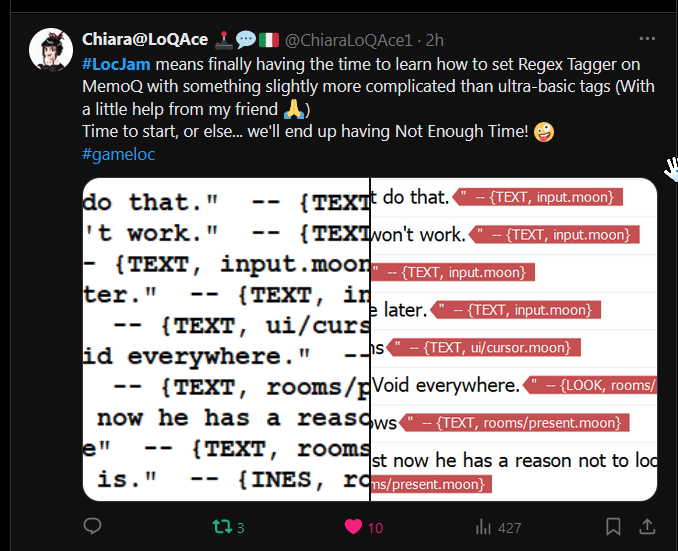Hello it's me again with another question
None of the CAT tools I work with are able to read .lua files so I wanted to know if anyone else is going to translate using a CAT tool and if it's possible to convert the loc file into some format that can be read by these tools. I know .txt works but I'm wondering if it's possible to isolate the strings without losing formatting.
I hope this makes sense. Happy translating everyone!





